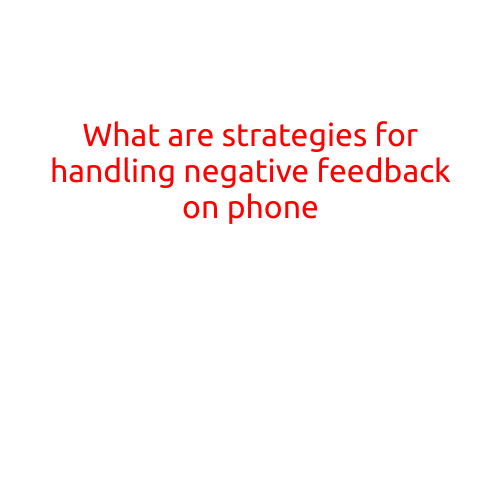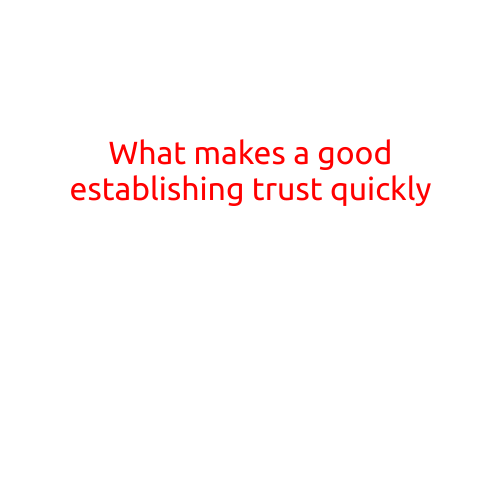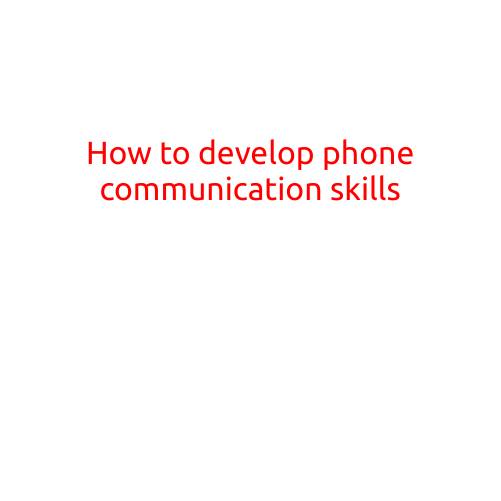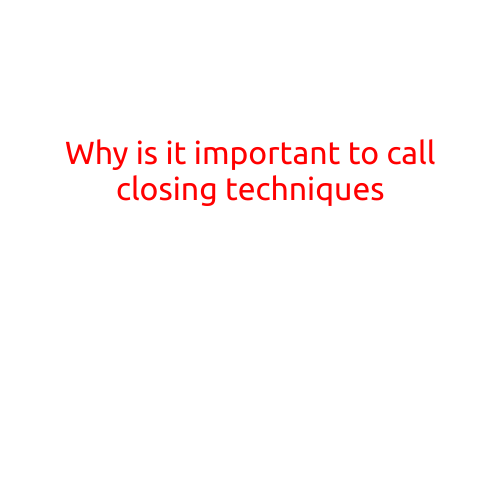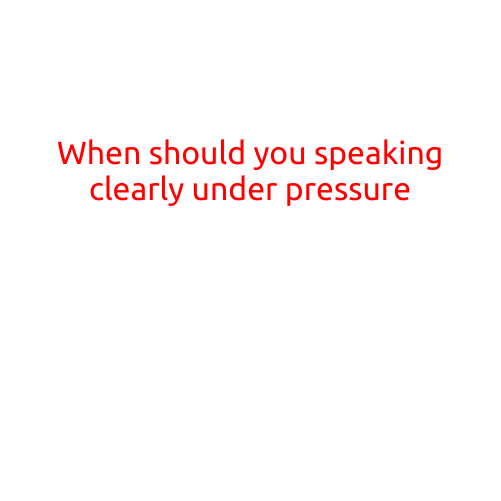
When Should You Speak Clearly Under Pressure?
When faced with a high-stakes situation, it’s natural to feel a surge of adrenaline and tension in your body. Your heart rate quickens, your palms get sweaty, and your mind goes blank. But as a leader, an entrepreneur, or a public speaker, it’s essential to maintain a calm and composed demeanor, even when the pressure is on.
Speaking clearly under pressure is a valuable skill that can make all the difference in a crucial conversation, presentation, or negotiation. But when should you speak clearly under pressure? Here are some key situations where clarity of speech is crucial:
- Public Speaking Engagements
Whether you’re addressing a crowd of thousands or a room full of industry experts, public speaking engagements require you to convey your message with confidence and clarity. When speaking under pressure, focus on slow, deliberate enunciation, and maintain eye contact with your audience.
- Job Interviews
Job interviews are high-stakes situations where your ability to articulate yourself clearly can make or break your chances of landing your dream job. Speak clearly, slowly, and confidently, and be prepared to answer challenging questions with poise and composure.
- Business Meetings and Negotiations
In business, clarity of speech is essential for building trust, conveying your message, and driving deals forward. When negotiating under pressure, speak clearly and calmly, avoiding jargon and technical terms that might confuse your counterpart.
- Crisis Situations
When dealing with a crisis, whether it’s a natural disaster, a product recall, or a reputational scandal, clear communication is critical for staying calm, building trust, and making informed decisions. Speak clearly, honestly, and empathetically to address the concerns of stakeholders and the public.
- Team Meetings and Brainstorms
Leading a team or participating in a brainstorming session requires effective communication to drive innovation, collaboration, and decision-making. When speaking under pressure during a meeting or brainstorm, focus on active listening, clear articulation of ideas, and respectful disagreement.
Tips for Speaking Clearly Under Pressure:
- Practice, Practice, Practice: Develop your public speaking skills through regular practice and training.
- Breathe Deeply: Take slow, deep breaths to calm your nerves and slow down your heart rate.
- Focus on Your Message: Instead of worrying about how you come across, focus on the message you want to convey.
- Use Positive Self-Talk: Encourage yourself with positive affirmations to build confidence and composure.
- Pause and Reflect: Take a moment to collect your thoughts before responding to a question or making a statement.
Conclusion:
Speaking clearly under pressure is a valuable skill that can make all the difference in high-stakes situations. By practicing effective communication, staying focused, and building confidence, you can convey your message with clarity and composure, even when the pressure is on.
